When a male goose longs for a chick of his own, he borrows an egg and ends up with a baby dinosaur.
Austria
Materials from Austria
Dragon Feathers
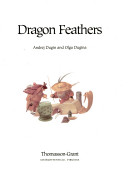
This spirited folktale from Austria’s Ziller Valley tells the story of a poor woodcutter’s son who learns that he must pluck three feathers from the wings of a terrible dragon in order to win the hand of his beloved.
Running with the Horses

Nina and her father live in a beautiful riding school famous for their Lippizaners–precious, rare performing horses. Nina loves the horses that her father looks after, but she also loves Zelda, one of the old carriage horses who she sneaks out to see. It’s a perfect world for a little girl, although she has to compete with her father’s work for his attention. But a war is coming, one that will threaten their lives and the very existence of the school. When the city is under attack, Nina and Father are in charge of fleeing with the horses to a safe place across the border, but can they pass enemy soldiers, bombed out bridges and the fearsome cold of the Alps to get there? And can Nina save her beloved Zelda, too?
For the Love of Music
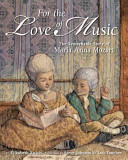
By the time she was 12, she was considered one of the finest pianists in Europe, but today few people know her name. Maria Mozart, like her famous brother Wolfgang, was a musical prodigy. The talented siblings toured Europe, playing before kings and empresses, were showered with gifts and favors, and lived in a whirlwind life of music and travel. They were best friends, collaborators, and confidantes. As they grew older, Wolfgang was encouraged to pursue his musical ambitions, while Maria was told she must stop performing and, ultimately, marry. But she was determined to continue playing the piano every day, for the love of music…. From the Hardcover edition.
Emil And Karl
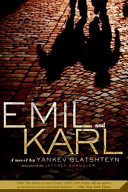
This is a unique work. It is one of the first books written for young readers describing the early days of the event that has since come to be known as the Holocaust. Originally written in Yiddish in 1938, it isone of the most accomplished works of children’s literature in this language. It is also the only book for young readers by Glatshteyn, a major American Yiddish poet, novelist, and essayist. Written in the form of a suspense novel, Emil and Karl draws readers into the dilemmas faced by two young boys-one Jewish, the other not-when they suddenly find themselves without families or homes in Vienna on the eve of World War II. Because the book was written before World War II, and before the full revelations of the Third Reich’s persecution of Jews and other civilians, it offers a fascinating look at life during this period and the moral challenges people faced under Nazism. It is also a taut, gripping, page-turner of the first order.
See the review at WOW Review, Volume 3, Issue 2
Behemoth
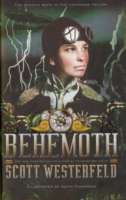
The second book in Westerfeld’s masterful series. Sequel to: Leviathan. Continues the story of Austrian Prince Alek who, in an alternate 1914 Europe, eludes the Germans by traveling in the Leviathan to Constantinople, where he faces a whole new kind of genetically-engineered warships.
A Faraway Island
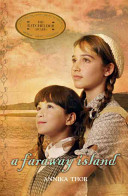
Torn from their homeland, two Jewish sisters find refuge in Sweden. It’s the summer of 1939. Two Jewish sisters from Vienna12-year-old Stephie Steiner and 8-year-old Nellieare sent to Sweden to escape the Nazis. They expect to stay there six months, until their parents can flee to Amsterdam; then all four will go to America. But as the world war intensifies, the girls remain, each with her own host family, on a rugged island off the western coast of Sweden. Nellie quickly settles in to her new surroundings. She’s happy with her foster family and soon favors the Swedish language over her native German. Not so for Stephie, who finds it hard to adapt; she feels stranded at the end of the world, with a foster mother who’s as cold and unforgiving as the island itself. Her main worry, though, is her parentsand whether she will ever see them again. From the Hardcover edition.
See the review at WOW Review, Volume 3, Issue 2
Crutches
“I Have a Little Problem”, Said the Bear
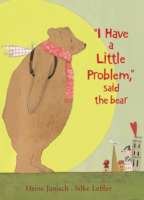
The bear has a problem and absolutely everyone has the perfect remedy. The only trouble is, they’re all in such a hurry to help, they have no time to find out what the bear’s problem is. Everyone knows how it feels not to be listened to — especially children.
Play to the Angel
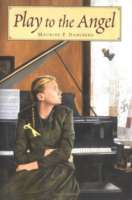
In February 1938, in Vienna, twelve-year-old Greta Radky is devastated to learn that her mother plans to sell the family piano. Greta’s brother, a concert pianist, died the previous April, and her mother thinks of the piano as his. But Greta is an equally committed musician, and when she meets a mysterious piano teacher who agrees to work with her, she proves it. With his help the piano is saved, and inspired by his tiny angel doll, Greta practices furiously for her first recital. Then, on the day of the performance, the Nazis invade Austria. Suddenly Greta discovers her teacher’s secret and knows that his life is in danger. Having stood up to her mother, Greta must now confront the Nazis.

